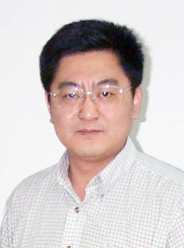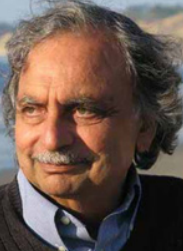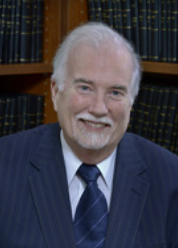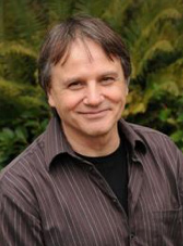 Nianzhi Jiao
Nianzhi Jiao
Fellow of Chinese Academy of Sciences
Prof. Nianzhi Jiao, Member of Chinese Academy of Sciences (CAS) and Fellow of The World Academy of Sciences (TWAS), and majored in Aquatic Ecology and Marine Environmental Sciences. He has more than 300 publications including more than 220 SCI research papers in English journals such as Science, Nature series, PNAS, ISME-J, etc. Based on his long-term research and collaborations with international colleagues, Prof. Jiao proposed a new concept on carbon sequestration in the ocean, the Microbial Carbon Pump (MCP, Nature Reviews Microbiology), MCP was commented by Science as “The invisible hand behind a vast carbon reservoir”, and as “research hot spot” by peers in the literature. The Scientific Committee on Oceanic Research (SCOR) set a Working Group on MCP (SCOR-WG134), and Science published a special booklet on MCP. Prof. Jiao has founded a new permanent forum on Ocean Biogeochemistry at the Gordon Research Conferences (GRC).Prof. Jiao has obtained “National Natural Science Award (Silver Medal)” by the State Council of China (first contributor) twice (2006, 2015), “Certificate of Merit” of the First “National Innovation Award” (2017).
 Zhengtang Guo
Zhengtang Guo
Fellow of Chinese Academy of Sciences
Prof. Zhengtang Guo is the Vice President of University of CAS, Chair of the PAGES Working Group, Vice President of the International Union for Quaternary Research (INQUA), Chair of the Loess Commission of Chinese Association for Quaternary Research (CHIQUA), Associate Editor-in-Chief of Science China: Earth Science, and Editor of Global and Planetary Change. His research interests focus on Quaternary/Cenozoic geology, paleoclimatology, paleopedology and biogeochemistry, and his has more than 160 publications. He has won the 2nd class of National Natural Science Awards.

Farooq Azam
Fellow of American Academy of Arts and Sciences
Prof. Farooq Azam, Fellow of American Academy of Arts and Sciences and a Distinguished Professor at the Scripps Institution of Oceanography at the University of California San Diego with the research topics of Coral Reef Biology and Ecology, Marine Microbiology and Plankton Ecology and Foob-Web Interactions. Prof. Azam proposed the famous concept of Microbial Loop, which stands out as one of the notable land marks in Marine Microbiology. In addition to introducing the concept of the microbial loop Azam is responsible for bringing conceptual advances in several areas of marine microbiology. He is a leader in identifying the importance of microscale patchiness in the marine environment, and that bacteria can respond to patchiness in nutrient fields and particulate organic matter. This area of research is now pursued more actively in the field at large with the introduction of advanced digital and single cell imaging.He has published more than 200 papers, and he is an ISI Highly Cited Researcher. His publications have been cited more than 24,500 timesProf. Azam has obtained plentiful awards and honors include Jim Tiedje Award presented by ISME (International Scociety for Microbial Ecology) in 2004, and John Martin Award (American Society of Limnology and Oceanography, ASLO) in 2006.
 Louis Legendre
Louis Legendre
Fellow of the European Academy of Sciences
Prof. Louis Legendre, Fellow of the Royal Academy of Sciences of Canada, Fellow of the European Academy of Sciences, and professor emeritus at the Pierre & Marie Curie University Paris 06, France, and Laval University, Canada. Professor Legendre′s fields and topics of research are biological oceanography and marine biogeochemistry, numerical ecology, and philosophy of science. His work is a blend of theoretical studies, laboratory research, and fieldwork. He had field experience in the Atlantic, Pacific and Arctic Oceans, and in the Mediterranean and Okhotsk Seas. Over the course of his career, he conducted research in tropical, temperate and polar waters. He presented more than 530 public lectures and seminars, including 115 keynote and invited lectures, in more than 30 countries.Professor Legendre has received numerous prizes and honors, which include knighthood in the Order of Saint Charles (Principality of Monaco), the International Ecology Institute Prize, the G. Evelyn Hutchinson Award (American Society of Limnology and Oceanography, ASLO), recognition as Highly Cited Researcher (Institute for Scientific Information), Honorary Doctorate from the University of Liege (Belgium), the Quebec Prize in Pure and Applied Sciences, and two awards from the Association canadienne-fran?aise pour l′avancement des sciences (Acfas) for Biological and Medical Sciences and for Environmental Sciences (the latter with Prof. Pierre Legendre), respectively.

Curtis Suttle
Fellow of the Royal Society of Canada
Prof. Curtis Suttle, Fellow of the Royal Academy of Sciences of Canada, Fellow of the Canadian Institute for Advanced Research, and recipient of the A.G. Huntsman Award for Excellence in Marine Science. And he is a Distinguished University Professor of theUniversity of British, Canada. Prof. Suttle is one of the World's leading marine virologists. His contributions cross over many fields including biological oceanography, environmental microbiology, microbial ecology, virology and phycology. His active research program encompasses environmental microbiology and virology. He has authored over 100 scientific papers, and has published in many of the most highly ranked journals including Nature, Science and Proceedings of the U.S. National Academy of Sciences. He spearheaded the publication of one of the first open-access books, which makes state-of-the-art methods in aquatic virus research freely available worldwide.He has been an active member of numerous scientific societies and has held elected office in the American Society of Microbiology, the American Society of Limnology and Oceanography, and the International Committee on the Taxonomy of Viruses. He has had editorial responsibilities for Limnology and Oceanography, Aquatic Microbial Ecology, Environmental Microbiology and Microbial Ecology.

